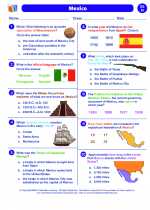John F. Kennedy
John Fitzgerald Kennedy, commonly known as JFK, was the 35th President of the United States, serving from January 1961 until his assassination in November 1963. He was a charismatic leader and is remembered for his inspiring speeches, advocacy for civil rights, and handling of the Cuban Missile Crisis.
Early Life and Background
John F. Kennedy was born on May 29, 1917, in Brookline, Massachusetts, into a wealthy and politically influential family. His father, Joseph P. Kennedy, was a successful businessman and his mother, Rose Kennedy, was a prominent socialite. Kennedy attended prestigious schools and later served in the Navy during World War II, where he earned a Purple Heart and other commendations for his bravery.
Political Career
Kennedy entered politics after the war, serving as a congressman and then as a senator from Massachusetts. In 1960, he ran for the presidency as the Democratic nominee and won a close election against Richard Nixon, becoming the youngest person to be elected president at the age of 43.
Accomplishments and Legacy
During his presidency, Kennedy focused on foreign affairs, particularly the Cold War and the space race. He established the Peace Corps, a volunteer organization that provided aid to developing countries, and played a key role in defusing the Cuban Missile Crisis, a tense standoff with the Soviet Union. He also advocated for civil rights and proposed major legislative initiatives to address economic inequality and improve healthcare.
Assassination and Impact
Tragically, Kennedy's presidency was cut short when he was assassinated in Dallas, Texas, on November 22, 1963. His death had a profound impact on the nation and the world, leading to an outpouring of grief and a sense of lost potential. Kennedy's legacy continues to be celebrated for his vision, leadership, and enduring commitment to public service.
Study Guide
- What was John F. Kennedy's full name?
- Where and when was Kennedy born?
- What was Kennedy's role during World War II?
- What political positions did Kennedy hold before becoming president?
- What major initiatives did Kennedy propose during his presidency?
- What was the Peace Corps and why was it significant?
- What was the Cuban Missile Crisis and how did Kennedy handle it?
- When and where was Kennedy assassinated?
- What impact did Kennedy's presidency and assassination have on the United States and the world?
[John F. Kennedy] Related Worksheets and Study Guides:
.◂Social Studies Worksheets and Study Guides Eighth Grade. Mexico
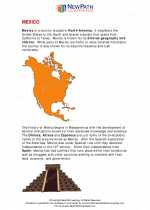
 Worksheet/Answer key
Worksheet/Answer key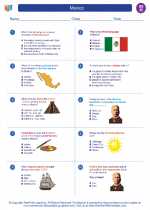
 Worksheet/Answer key
Worksheet/Answer key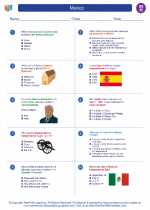
 Worksheet/Answer key
Worksheet/Answer key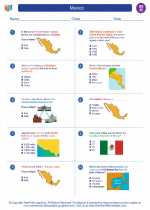
 Worksheet/Answer key
Worksheet/Answer key